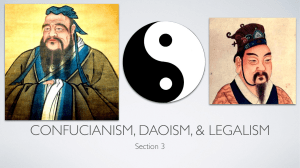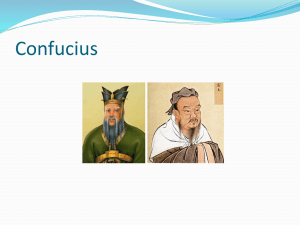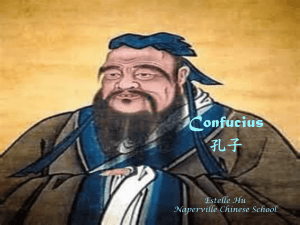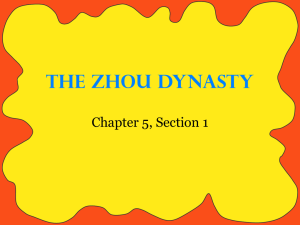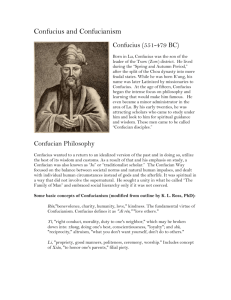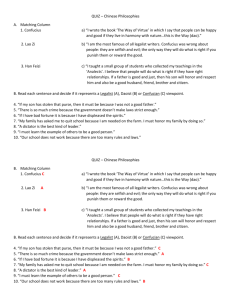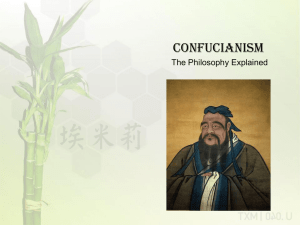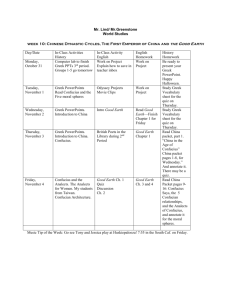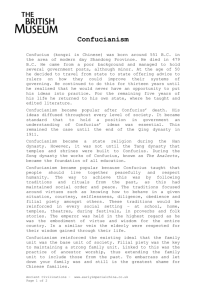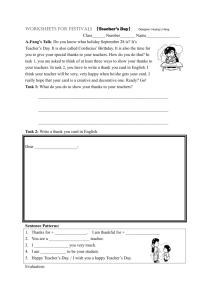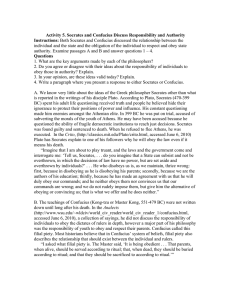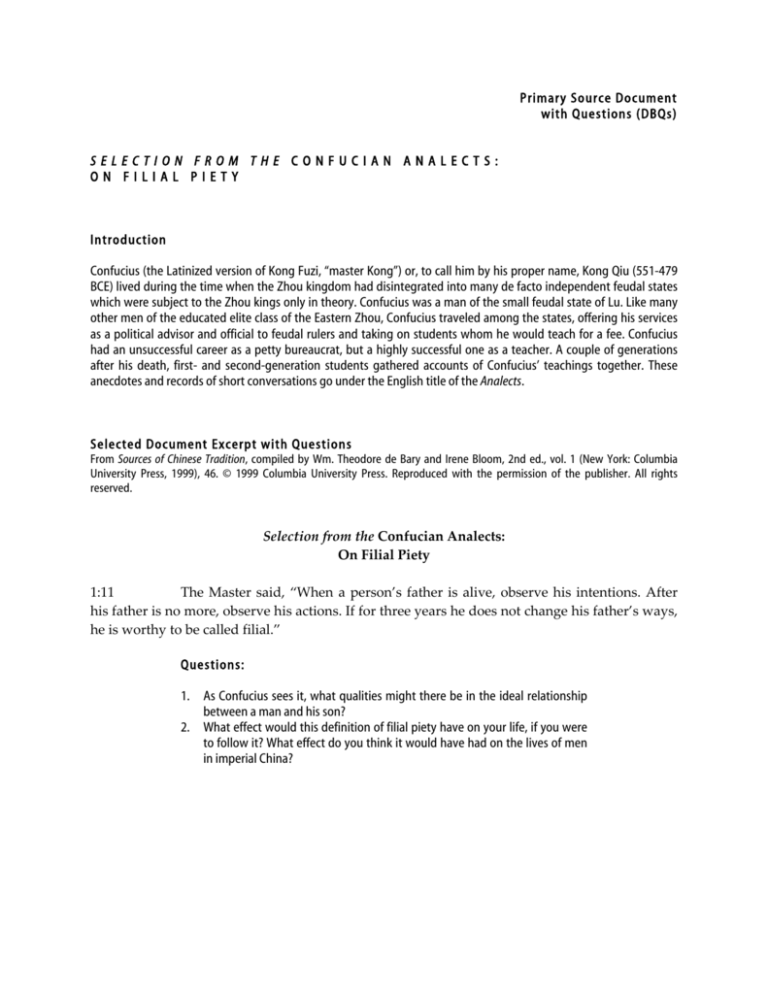
Primary Source Document
with Questions (DBQs)
SELECTION FROM THE CONFUCIAN ANALECTS:
ON FILIAL PIETY
Introduction
Confucius (the Latinized version of Kong Fuzi, “master Kong”) or, to call him by his proper name, Kong Qiu (551-479
BCE) lived during the time when the Zhou kingdom had disintegrated into many de facto independent feudal states
which were subject to the Zhou kings only in theory. Confucius was a man of the small feudal state of Lu. Like many
other men of the educated elite class of the Eastern Zhou, Confucius traveled among the states, offering his services
as a political advisor and official to feudal rulers and taking on students whom he would teach for a fee. Confucius
had an unsuccessful career as a petty bureaucrat, but a highly successful one as a teacher. A couple of generations
after his death, first- and second-generation students gathered accounts of Confucius’ teachings together. These
anecdotes and records of short conversations go under the English title of the Analects.
Selected Document Excerpt with Questions
From Sources of Chinese Tradition, compiled by Wm. Theodore de Bary and Irene Bloom, 2nd ed., vol. 1 (New York: Columbia
University Press, 1999), 46. © 1999 Columbia University Press. Reproduced with the permission of the publisher. All rights
reserved.
Selection
from
the
Confucian
Analects:
On
Filial
Piety
1:11
The
Master
said,
“When
a
person’s
father
is
alive,
observe
his
intentions.
After
his
father
is
no
more,
observe
his
actions.
If
for
three
years
he
does
not
change
his
father’s
ways,
he
is
worthy
to
be
called
filial.”
Questions:
1. As Confucius sees it, what qualities might there be in the ideal relationship
between a man and his son?
2. What effect would this definition of filial piety have on your life, if you were
to follow it? What effect do you think it would have had on the lives of men
in imperial China?

